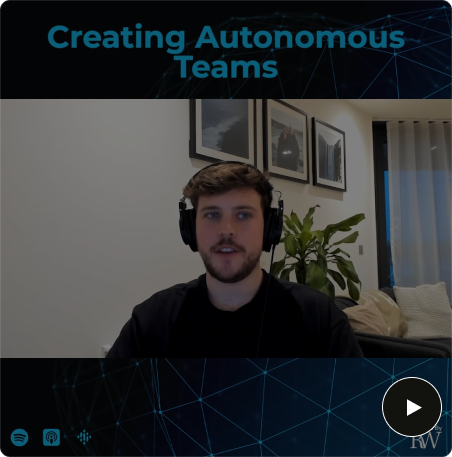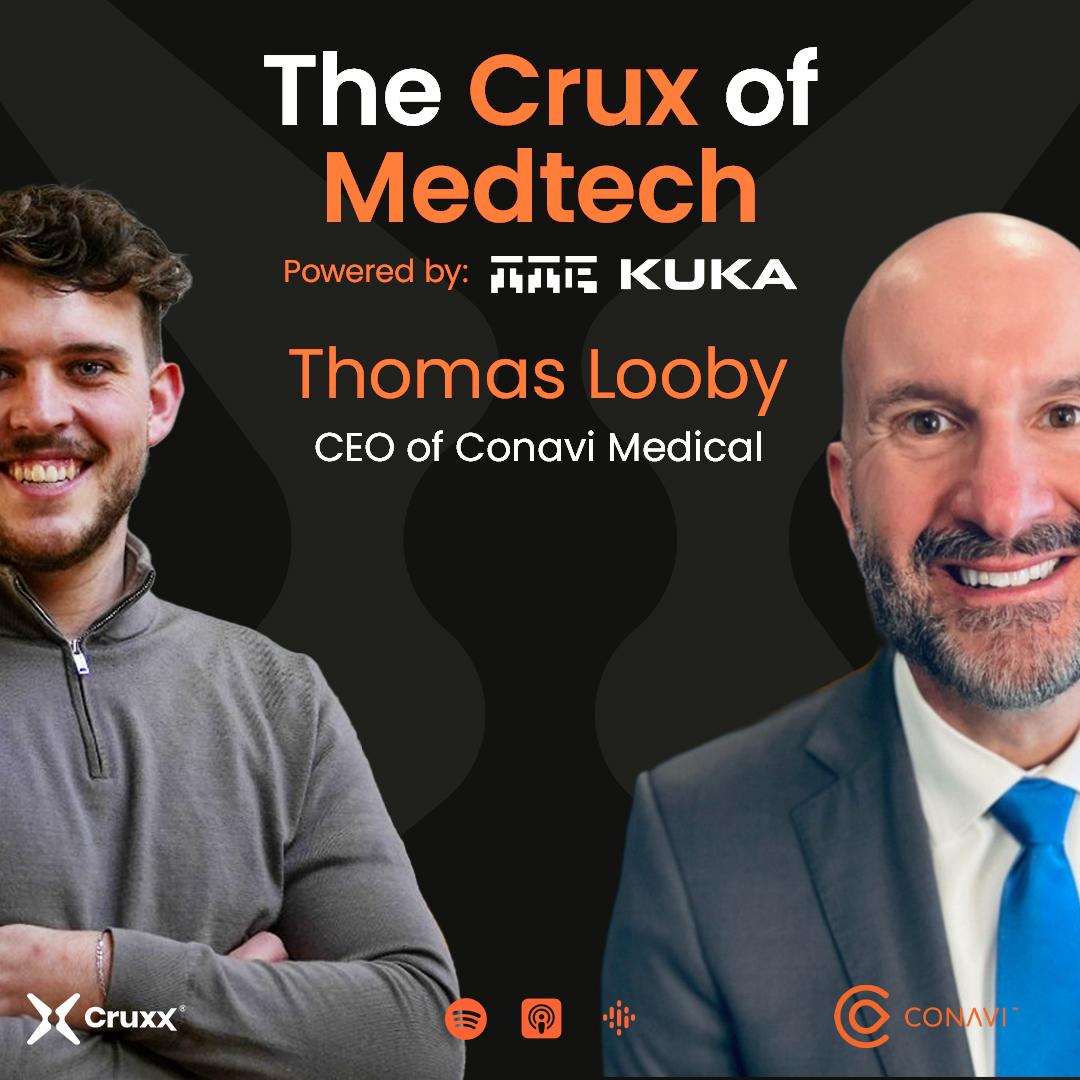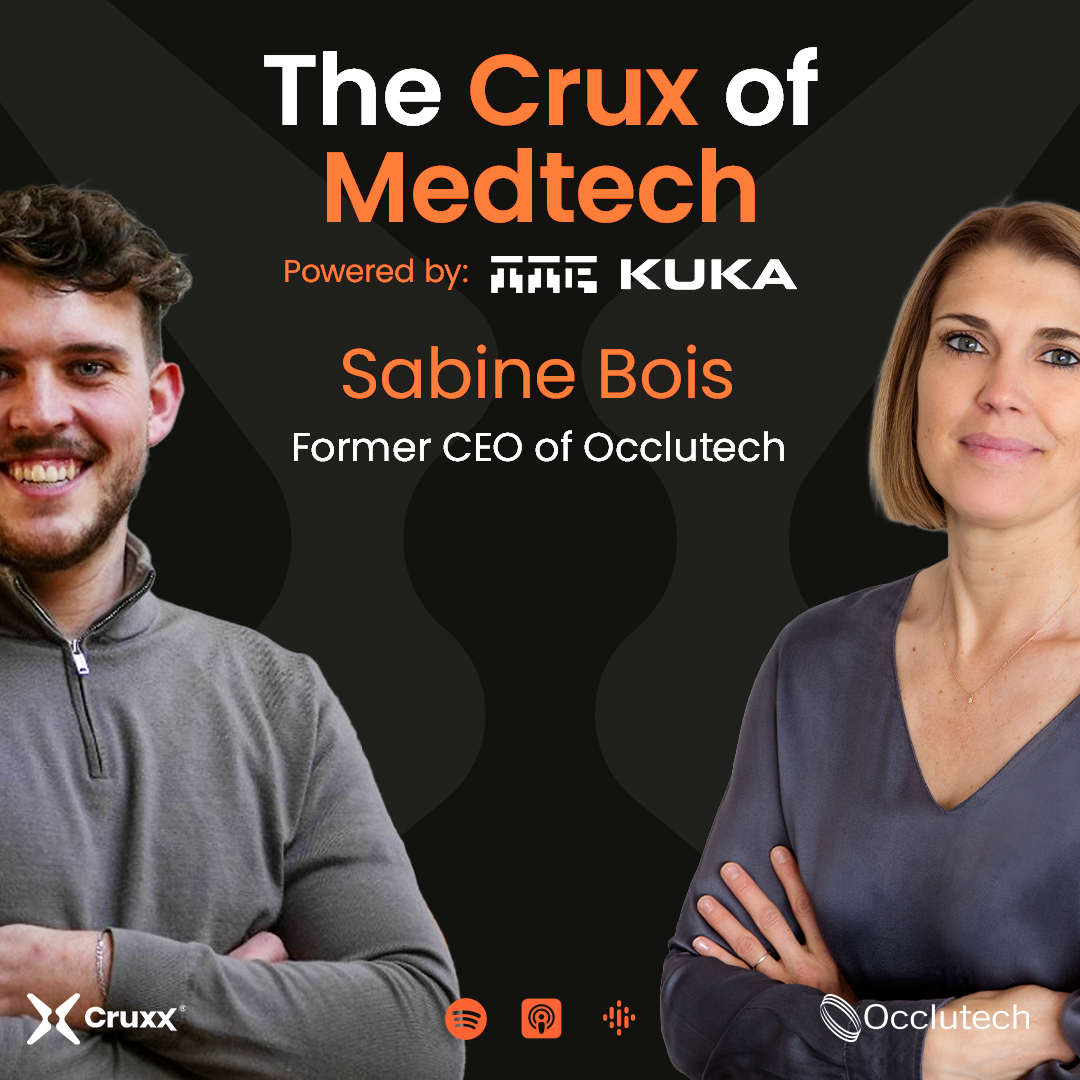One of the biggest challenges facing the surgical robotics industry is securing funding. On the first episode of The Surgibots Podcast I spoke to Benjamin Sexson, the CEO and Co-Founder of Monogram Orthopaedics, about a radical alternative funding route that his company has recently taken.
Why did you decide to go down the crowdfunding route?
I'm gonna be honest, crowdfunding wasn't our first choice, but we struggled to get the capital from a traditional finance route. Doug and I were a two-man-band with a really good idea, some patent filings and a prototype. We had this vision, but we didn’t have a team or a way to execute it. Investors were saying ‘Come back when you have FDA approval’ or ‘It's going to take too much money to get it off the ground’. It was the scale of what needed to be done to build a team that was our struggle, and we just weren't able to raise the capital.
I suggested crowdfunding. The first portal that we reached out to is a group called Seed Invest. We basically presented the opportunity to the community we got through their investment committee, and to the general public and said ‘Hey, do you want to help support it?’ It turned into one of the most successful crowdfunded orthopaedic raises I'm aware of. Once you're in the crowdfunding jetstream, it becomes a blessing and a curse, because it's a challenge to get out of it and go back to conventional funding. We've kept this channel and it's been really successful.
What's next for us is a planned listing on NASDAQ. We have a series D round that's just gone live, which is effectively going to be the capital that takes us public, and then will be publicly listed. That's going to put us in a position where we can access institutional capital and push this across the finish line.
What are the pros and cons of going down the crowdfunding route?
I dislike the way the system operates. It's almost like a popularity contest with Silicon Valley. There are certain things that these VCs are looking for, and a lot of them are arbitrary. They’re not good markers of whether or not a company is going to be successful, or whether or not an entrepreneur has the hunger to make it happen. What I like about crowdfunding is that you're dealing with real people. If you're genuine, and you explain what you're trying to do, there’s a pool of people who either want to be a part of it or don’t. They’ll decide to invest without intangibles about your business idea. It’s more real and organic. You present your idea, and people either like it, or they don't.
The challenge with it is that crowdfunding is pretty new. When you go to these funding portals, people are negotiating on behalf of their investors, and they're trying to do what they think is in their best interest. These investors now have voting rights though. As a company we have to manage a cap table with a lot of people. If somebody gave us $200.03 a few years ago there, they might be following the story, but they might not open every email. When you need them to vote on something, it becomes difficult for companies to really manage that process.
There's a lot of capital available through crowdfunding portals, but you do hit limits, so it’s hard to scale when you need institutional capital. For Monogram to be successful, we're going to need really serious capital, because it's a serious undertaking. That’s when it becomes challenging to get that capital outside a corporate structure. Big investors might need a certain amount of shares, but because of how we’re structured with crowdfunding, we might not be able to offer it to them. That makes it extremely difficult for institutional investors to come alongside and help build your company.
A big part of going public for us is that it's going to convert all of the preferred share classes that we have into common shares. Everybody will be on the same playing field, and then we'll look like any other company to an institutional investor. I would caution anybody thinking about crowdfunding to be really careful, because it can become an impediment to growth at a later stage.
Are you worried about the changing market conditions?
I frequently don't sleep thinking about that. There are no guarantees you'll have access to capital. The economy certainly concerns us, so we've tried to be as conservative as we can with hiring. It's really hard to find the right balance between keeping your team lean, and getting things done that need to get done. But yes, that's a major concern. Our economy, the stock market and people’s appetite for risk is rapidly changing, so all we can do is put one foot in front of the other, and try to build a solution that will make a difference for patients. That is all we focus on; how is this system or concept going to make a surgeon's life easier, or improve outcomes for a patient? That's all we have in our control.
If the economy doesn't go where we want it to go, we have to be smart about spending money on people who we don't necessarily need to hire right now. Every dollar goes into r&d or building a product. We're being cautious right now. I certainly think that things will get tight. It's not all negative, though. Hiring has been challenging the past three to six months, because hiring engineers was becoming cost prohibitive. If there was a recession, that would improve the labour pool for companies like Monogram who can’t offer the level of salary that we would like to, so there are always ups and downs to every situation. We just have to be smart about how we spend our money.
To learn more about alternative funding and financial strategies in the surgical robotics industry, listen to The Surgibots Podcast here.







